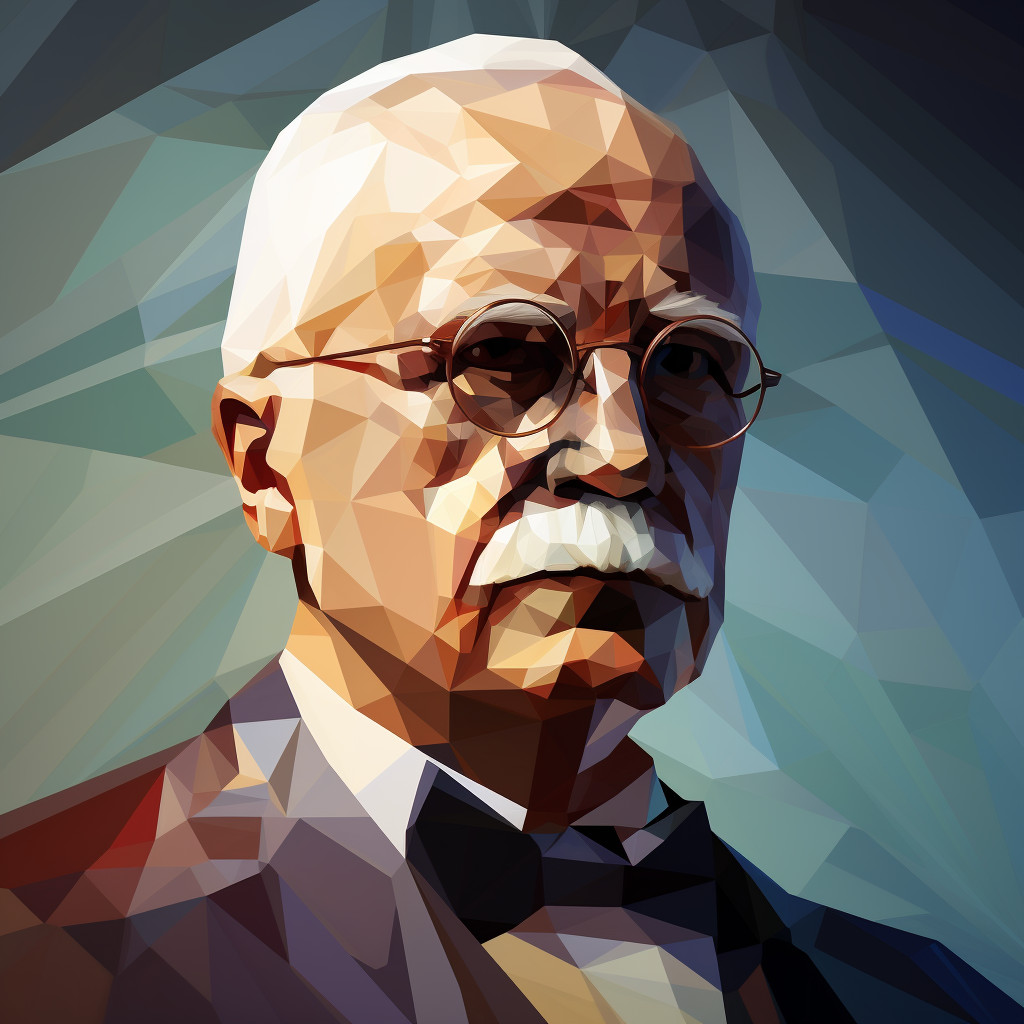'Unconscious' Quotes
Unconscious quotes refer to phrases or statements that reveal deep truths about the human psyche and the hidden motivations that drive our thoughts and actions. These quotes have been used throughout history to shed light on the complexities of the human mind and to inspire individuals to explore th…Read More
Unconscious quotes refer to phrases or statements that reveal deep truths about the human psyche and the hidden motivations that drive our thoughts and actions. These quotes have been used throughout history to shed light on the complexities of the human mind and to inspire individuals to explore their unconscious thoughts and emotions. From Sigmund Freud’s famous quote “The mind is like an iceberg, it floats with one-seventh of its bulk above water” to Carl Jung’s “Until you make the unconscious conscious, it will direct your life and you will call it fate,” these quotes have influenced and inspired individuals and society to delve deeper into the workings of the mind. They have also had a profound impact on famous figures such as artists, writers, and philosophers, who have used them to explore the depths of human nature in their work. The historical context of these quotes can be traced back to the development of psychoanalysis in the late 19th and early 20th century, which brought attention to the importance of the unconscious mind in shaping our thoughts and behaviors. Today, these quotes continue to resonate and motivate people across the globe, reminding us of the power and complexity of our unconscious thoughts and the importance of understanding them.Read Less
Unconscious quotes refer to phrases or statements that reveal deep truths about the human psyche and the hidden motivations that drive our thoughts and actions. These quotes have been used throughout history to shed light on the complexities of the human mind and to inspire individuals to explore their unconscious thoughts and emotions. From Sigmund Freud’s famous quote “The mind is like an iceberg, it floats with one-seventh of its bulk above water” to Carl Jung’s “Until you make the unconscious conscious, it will direct your life and you will call it fate,” these quotes have influenced and inspired individuals and society to delve deeper into the workings of the mind. They have also had a profound impact on famous figures such as artists, writers, and philosophers, who have used them to explore the depths of human nature in their work. The historical context of these quotes can be traced back to the development of psychoanalysis in the late 19th and early 20th century, which brought attention to the importance of the unconscious mind in shaping our thoughts and behaviors. Today, these quotes continue to resonate and motivate people across the globe, reminding us of the power and complexity of our unconscious thoughts and the importance of understanding them.
33 Notorious 'Unconscious' Quotations and Sayings
Unconscious – Symbolic Value
The concept of the unconscious has been a topic of fascination and debate for centuries. It is a term that has been used in various contexts, from psychology to literature, and has been given different meanings and interpretations. In its simplest form, the unconscious refers to the part of our mind that is inaccessible to our conscious awareness. It is a mysterious and complex concept that holds great symbolic value in our understanding of the human psyche.The idea of the unconscious was first introduced by Sigmund Freud, the father of psychoanalysis. He believed that the unconscious mind is the repository of our repressed thoughts, desires, and memories. These hidden aspects of our psyche have a powerful influence on our behavior and can manifest in our dreams, slips of the tongue, and other unconscious behaviors. Freud saw the unconscious as a dark and primal force that needed to be explored and understood in order to achieve psychological well-being.
Unconscious – Cultural and Historical Significance
The concept of the unconscious has played a significant role in shaping our cultural and historical understanding of the human mind. In ancient civilizations, the unconscious was often associated with the realm of the gods and was seen as a source of divine inspiration. In Greek mythology, the god Apollo was said to speak through the unconscious mind of the Oracle of Delphi. This belief in the power of the unconscious can also be seen in the practice of dream interpretation in many cultures.In the 19th and 20th centuries, the concept of the unconscious gained more prominence with the rise of psychoanalysis. It became a central idea in the works of influential thinkers such as Carl Jung and Jacques Lacan. The cultural significance of the unconscious can also be seen in the widespread use of terms like “subconscious” and “unconscious bias” in everyday language.
Unconscious – Common Themes in Motivational Contexts
The unconscious mind has been a popular theme in motivational contexts, particularly in the field of self-help and personal development. Many motivational speakers and coaches often refer to the power of the unconscious in achieving success and overcoming obstacles. They believe that by tapping into our unconscious mind, we can unlock our full potential and achieve our goals.One common theme in motivational contexts is the idea of the “law of attraction,” which suggests that our thoughts and beliefs can manifest into reality. This concept is based on the belief that our unconscious mind is constantly working to bring our desires into fruition. By harnessing the power of our unconscious, we can attract positive outcomes and manifest our dreams.
Unconscious – Portrayal in Art and Media
The concept of the unconscious has also been a source of inspiration for artists and writers. In literature, the unconscious has been portrayed as a mysterious and often dangerous force that can lead to madness and self-destruction. In the works of authors like Edgar Allan Poe and Franz Kafka, the unconscious is depicted as a dark and chaotic realm that can consume the conscious mind.In visual art, the unconscious has been represented through surrealism, a movement that sought to tap into the unconscious mind to create dreamlike and bizarre images. Artists like Salvador Dali and René Magritte used symbolism and dream imagery to explore the depths of the unconscious and its impact on our perception of reality.
Unconscious – Impact on Understanding of Life and Society
The concept of the unconscious has had a profound impact on our understanding of life and society. It has challenged the idea of rationality and brought attention to the hidden forces that shape our thoughts and behaviors. The study of the unconscious has also shed light on the role of childhood experiences and trauma in shaping our personalities and behaviors.Moreover, the concept of the unconscious has also brought attention to the issue of mental health and the importance of addressing our inner conflicts and repressed emotions. It has helped us understand the complexities of the human mind and the impact of our unconscious on our relationships, decision-making, and overall well-being.In conclusion, the concept of the unconscious holds great symbolic value and has had a significant impact on our cultural, historical, and personal understanding of the human mind. It continues to be a subject of fascination and debate, and its exploration has led to a deeper understanding of ourselves and the world around us.





![Do not accept gifts; [because] that is bribery.](https://quotesguide.s3.amazonaws.com/output/do-not-accept-gifts-because-that-is-bribery.jpg)












![[On a dull party:] It was a fête worse than death.](https://quotesguide.s3.amazonaws.com/output/on-a-dull-party-it-was-a-fete-worse-than-death.jpg)